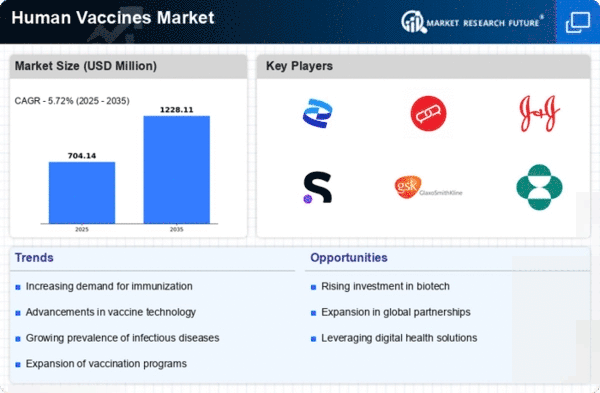Market Analysis
In-depth Analysis of Human Vaccines Market Industry Landscape
The Middle East and Africa human vaccines market is set to reach US$ 1.03 BN by 2032, at a 5.7% CAGR between years 2023-2032. The trends in the Human Vaccine market can best be described as ever-evolving driven by developments within medical science, public health interests and global impacts. Technological advances such as the mRNA and vector-based platforms are transforming vaccine development. These technologies make it possible to quickly design and manufacture vaccines, as can be seen in the development of COVID-19 shots within months. International, attention has been given to the need for enhancing vaccination programs intended at alleviating cases of preventable diseases. Governments and international organizations are spending on the general inoculation efforts, leading to higher demand for vaccines as well as market development. The development of novel diseases such as Zika, Ebola and the seasonal influenza threat has increased vaccine R&D for these infectious agents. The market currently manifests a tendency toward more proactive vaccine preparedness. However, the rising trend of personalized vaccines is most evident in cancer immunotherapy. Personalized cancer vaccines which target a specific tumor profile are becoming popular providing hope in the treatment of various cancers. The pandemic associated with COVID-19 has emphasized the necessity for global vaccine justice. Market dynamics are being influenced by initiatives meant to promote equitable access of vaccines, especially in the low and middle-income countries. We can see a growing trend toward technology transfer and local manufacturing collaboration. Additional vaccine production by the pharmaceutical companies and research centers. However, human vaccine market is not limited to infectious diseases but also covers therapeutic vaccines that target Alzheimer’s disease and autoimmune disorders. Vaccine technologies also converge with other therapeutic interventions such as gene therapy and immunotherapy, which is another major trend. This interdisciplinary method can potentially resolve complex medical concerns and extend applications of vaccines. Interest in broader uses of mRNA technology emerged due to impressive successes with COVID-19 vaccines. Contemporary research also focuses on the mRNA as part of vaccines against a variety of infectious diseases and even in unique curative interventions, not related to standard immunization. With increased global travel, there is a need for travel vaccines to prevent diseases that are common in different regions. This trend is spurred both by leisure travellers and the growing labor force that often cross borders. Vaccine distribution and administration is also being influenced by digitization of health care. Digital instruments like electronic medical records or vaccine passports are becoming prerequisites to providing efficient vaccination delivery and observation.



















Leave a Comment